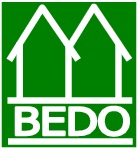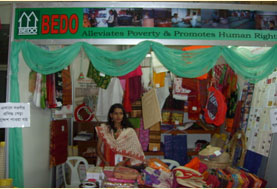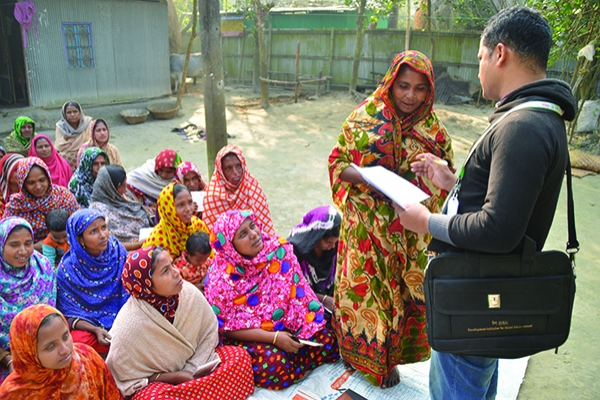Micro-Finance Program
MESSAGE FROM PRESIDENT BEDO, since inception, has been playing an important role to uplift the socio-economic condition of the poor and down-trodden
Micro Credit Fair PKSF organized a Micro Credit Fair at Bangladesh-China Friendship Conference Center from 25 April to 29 April 2008.
Documentary Drama Production on Micro-Credit Program In order to raising awareness among the ultra poor people especially beggars, BEDO produced a documentary
Micro Credit Fair PKSF organized a Micro Credit Fair at Bangladesh-China Friendship Conference Center from 25 April to 29 April 2008. The
Case Study
A Success Story of AGROSOR
Abdul Bari Swapan, a resident of Mandalpara village in Dupchachia, Bogura where he lives with his wife and two children. He embarked on his entrepreneurial journey by establishing a rice mill, but encountered challenges such as intense competition, a shortage of labour, and high labour wages within the rice mill industry. Additionally, the prevalence of automated rice mills made it increasingly challenging to sustain his venture. Consequently, Swapan began exploring alternative business avenues. In 2013. he made a critical decision to establish a plastic bag manufacturing factory, utilizing his personal funds amounting to nearly BDT 3 crore. Over time, he employed 120 workers and managed his business adeptly, achieving considerable success.
However, Swapan’s business faced a critical juncture during the COVID-19 pandemic, primarily due to the nationwide lockdown imposed in 2020. The lockdown resulted in substantial losses as he was unable to sell the manufactured bags. Production resumed at the end of 2021 when lockdown was eased, but Swapan struggled to expand his operations due to financial constraints, particularly required in procuring raw materials.
Recognizing the need for additional capital to revitalize his enterprise, Swapan approached BEDO’s Credit Officer to secure a loan for his business. Following an assessment of his business and capability, the Credit Officer recommended that BEDO for disbursing a loan of BDT 15 lakh under the Agrosor programme. With this infusion of funds, Swapan reinvested in procuring the necessary raw materials for plastic bag production. Gradually, he began to reap profits from this strategic investment.
Presently, Swapan’s factory employs 40 women and 80 men, producing plastic bags valued at BDT 10,00,000 per month, resulting in a monthly profit of BDT 30,000. His business is flourishing, and he aspires to expand it further in the future. Swapan expressed his deep appreciation to BEDO and PKSF for their support, which included a loan with a favorable interest rate and accommodating terms during his business’s challenging phase.


Behula's Farm:
A Model of Self-Reliance and Success
Mst. Behula Begum, a resident of Pachusha village and a beneficiary of the Buniad Project under BEDO, faced significant challenges before joining the program. Her husband, who worked as a day laborer, struggled to provide for their family, which included Behula, himself. one son, and two daughters. They lived in a small, mud-built house with a roof made of straw. However, they owned a small plot of 4 decimals of arable land. Providing for the family and covering the educational expenses of their eldest daughter was becoming increasingly difficult for Behula Begum’s husband. In March 2017, with the support of Palli Karma-Sahayak Foundation (PKSF), BEDO began implementing the Buniad Project. On May 26, 2021. Behula Begum joined the Pachusha Women’s Association.
With guidance and assistance from BEDO. Behula Begum and her husband decided to utilize the homestead to rear high-quality goats. To purchase goats, she took a loan of 30,000 BDT. With additional support from PKSF, facilitated by BEDO, Behula received a two-day training on goat rearing.
Goat farming was not common in her local area, which meant there was a high demand for goats in the local market. Currently, Behula Begum owns 8 goats, and every year they give birth to about 12-15 kids. She earns approximately 100,000 BDT annually from selling goats.
In addition to goat farming, she also raises chickens and ducks. She has planted high-quality grass on 10 decimals of land to feed her livestock, and she owns several local breed 2 chickens. Today, she owns a tin-roofed house with her own sanitary latrine and drinking water facilities. Her home has transformed into a model of integrated farming, resembling a small-scale farm.
Behula has managed to send her son abroad, and she has married off her daughter. Her goat farm has become a topic of admiration in the area, inspiring many others to start their own goat farms. Looking forward, Behula Begum dreams of taking out a larger loan to lease more land and establish a commercial goat farm.

Sowing Seeds of Change:
Lovely Begum's Agricultural Success Story
Lovely Begum was born in Deuli village, located south of Shibganj Upazila in Bogura district of northern Bangladesh. She comes from a low-income family with five members, including her parents and three siblings. Her father, Babul Mia, was an agricultural laborer who worked both on his own land and others’ to support the family. Due to financial hardships Lovely could not pursue higher education.
In 1998, on August 19. Lovely Begum’s father arranged her marriage to Khokon Mia, a resides of Chanpur village, in a Muslim family, Currently, she lives with her husband and their son
Lovely recalls. “In my 22 years of married life. I couldn’t achieve much improvement in our living conditions due to our financial struggles and the lack of capital. Because we wers poor, no banks, individuals, or NGOs were willing to give us loans.”
On October 10. 2021. BEDO’s Mokamtola branch formed a new association in Lovely including Lovely. From this association, Lovely took her first SUFOLON loan of 30,000 BOT Begum’s village, named the Chanpur Women’s Association, with several members marking the beginning of her journey toward success. She has since taken loans three times, and currently, she has an outstanding loan of 80,000 BDT from BEDO
When no one else was there to support them in their business or agricultural pursuits BEDO provided Lovely with 30.000 BDT as capital. Using 15.000 BDT. she leased one bigha of land for a year, and with the remaining 15.000 BDT. she cultivated cauliflower on that land. Two months later, she sold the harvested cauliflower for a profit of 45.000 BDT Using the profits, she leased an additional two bighas of land for another year. She then planted hybrid potatoes on three bighas of land, yielding 270 maunds of potatoes after three months, with a market value of 219,240 BDT.
Step by step, Lovely Begum continued her path to success. Currently, she has ten bighas of leased land and two cows, with a personal capital of 350,000 BDT for agricultural work. This success has been made possible by the initial loan of 30,000 BDT she received from BEDO, which turned her life around. Now, she faces no financial hardship and has created employment opportunities for ten laborers through her agricultural project.

Dairy Dreams:
Soma Banu's Journey to Financial Independence
Soma Banu, a 35-year-old woman, lives in Sherpur Arji, a village in the Naogaon Sadar Upazila of Naogaon district. She studied up to the 8th grade. At a young age, her parents arranged her marriage to Mohammad Bifol from a nearby area. Mohammad Bifol, who studied up to the 10th grade, was involved in farming from a young age, as agriculture was his family’s primary occupation
Bitol and Soma lived in a joint family with Bifol’s parents, his elder brother, and his brother’s wife Naturally, the expenses of living in a joint family increased over time. During this period, Soma Banu and her husband Rifol became interested in rearing cows as an alternative source of income. In 2016. Bifol started with just one cow. That cow eventually had a calf. and the cow began to produce milk which Bifol sold regularly at the local market. After six months he sold the calf for 60.000 RDT and used the money to buy another dairy cow. With wo cows, they produced an average of 18 liters of milk daily, which he sold at 60 BDT per 600 BDT per day after covering and milk from the cows, Soma Banu’s family earned about 20,000 BDT per from t
Their milk business was doing well, but problems arose when the COVID-19 pandemic struck the country. During the government-imposed lockdown, all transportation was halted, making it Impossible for Bifol to sell the milk he produced. The local market didn’t offer good prices for milk. and transporting feed for the cows became difficult due to the lack of vehicles. Having to buy feed at high prices from the local market led to financial losses. During the two-year period of 2020 and 2021. Soma Banu’s family suffered a financial loss of around 70,000 to 80,000 BDT.
In 2022, as the COVID-19 situation normalized. Soma Banu and her husband Bifol resumed selling milk. However, with the increased costs of everything post-pandemic, the income from milk sales was no longer sufficient to cover their household expenses. They wanted to expand their dairy farm but faced challenges in raising the necessary capital.
Soma Banu approached the local BEDO association near her home to discuss her problems. The association’s president informed the Credit Officer about her situation. The Credit Officer told her about the PKSF RAISE project, which provided low-interest loans to small businesses affected by COVID-19. Interested, Soma discussed this with her husband, Bifol, who was also keen on taking the loan. They approached the local BEDO NGO, where the Credit Officer reviewed her case and approved a loan of 68,000 BDT on December 15, 2022. With this loan, Soma Banu purchased more cows.
After receiving the loan, Bifol bought a new cow. Currently, their farm has four cows, with three of them producing milk. They sell around 35 liters of milk daily at 70 BDT per liter. earning 2,450 BDT per day, with a net income of about 1,500 BDT after all expenses. This translates to an average monthly income of 40,000 BDT after expenses. Soma and Bifol wish to take additional loans to buy more cows and expand their dairy farm further.
Through the financial support of the World Bank and under the PKSF RAISE project implemented by BEDO, Soma Banu and Bifol have achieved financial stability. They are deeply grateful to PKSF and BEDO for this financial assistance.





